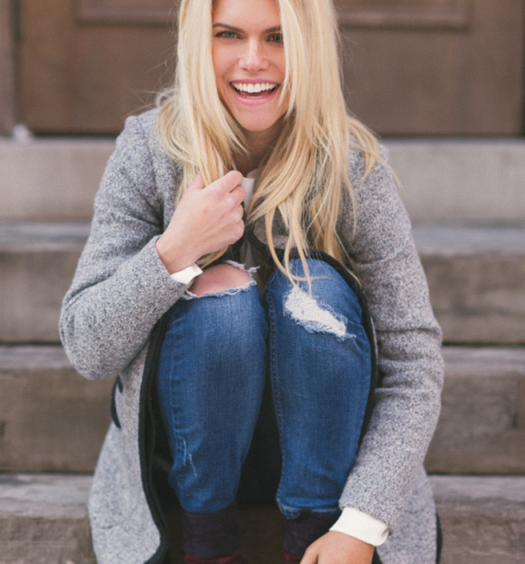Tell Your Story: Living a Creative and Meaningful Life

Photo by Aimee Whitmire
I was working on my school assignment on the laptop when my sister Hani walked into the front door, worn to a frazzle from a day’s work. As she put her bag down, I told her what mom cooked for dinner before we both went to the kitchen. It is one of those things we do as sisters, an unspoken agreement to always have meals together whenever we can. On that evening in 2008, Hani shared a dream she had the night before where we were running a whimsical store together (I’ll spare the details, because I’m still rooting for it to come true and I don’t wish to jinx it). It sparked a conversation on what we wanted to do with the rest of our lives. We were at very different stages of our lives – I was in my first year of studying business and Hani had been working in the fashion industry for several years. Yet, we were questioning our sense of purpose at the same table, which we then concluded that we wanted to live a creative and meaningful life.
This was the inception of Fictive Fingers, simple as that. At the time, we didn’t plan or anticipate that this miniscule hope to leverage on our gift of creativity to lead a better life would one day be a shared vision with thousands of strangers around the world through our work, classes, invited talks and even more casual conversations with people from all walks of life. Above all, we had no idea that in the eight years to follow, this labour of love would become our full-time career in 2013 and the most profound source of personal growth. Who we are today is the sum of all our experiences – be it ridiculously rewarding or obliquely offensive. As we step into another year, here’s an open letter on living a creative and meaningful life that we hope, in some small way, will help you reflect on your own sense of purpose.
Let me begin with the harsh truth. There are many articles addressing the problem in the Internet age where ideas and work get more difficult to monetize but easier to be stolen. In fact, there are many issues in the creative world surrounding fair use and appropriation that ruffle feathers. With the Internet and recent rise of social media, everything is more accessible now than ever before which makes the market more saturated, leading to these problems. We’re big fans of Christian Watson (@1924us) and we’ve been following his journey on Instagram way before he had close to half a million followers today. About a month ago, he disclosed an account by a person who’s at least six thousand miles away, blatantly imitating his work and visual style. We know of artists and designers whose work have been reproduced by the big guns who later offered “monetary compensation”. Based on our own experience, it could also happen right under your nose but don’t ever let the reality of being mistreated at some point in your journey inhibit the will to do what you’re meant to do.
Talent can only bring you so far, it takes hard work and grit to expand one’s capacity. When we meet people for the first time, we’ve never been interested to know their education background. You’d know why if you watch one of our favourite TED Talks by Sir Ken Robinson on creativity and education. But for some reason, there are people who think all artists come from art school, designers from design school. Creativity is, what we believe, a combination of existing concepts, fragments of information across disciplines and unorthodox ideas we come up with in the shower or develop over time. Sha’an d’Anthes, commonly known as Furry Little Peach, said it best in an interview, that “the most important thing (she) learned during (her) time at university is how essential being motivated and driven outside of an institutional setting is”. When we first had some tea and cake with her years back, she shared how she’s been drawing and making things with her hands for as long as she could remember and that’s something Hani and I accorded well with. Just like in school, we’re all given the same textbooks, tools and guidance but performance is conditional on individual efforts.
It also boils down to knowing why you’re doing what you do and what exactly makes it thrilling to wake up in the morning. Shallow, extrinsic motivators like status, money and approval are pervasive in our society. You don’t have to do what everyone else is doing or tell you to. At the end of the day, you’re the sole custodian of your mind, heart and soul. The assumptions and opinions of others actually reveal a great deal of who they are, not you.
Our journey has been by far an organic one and we intend to keep it that way. Especially in our culture of immediacy, it’s important to remind ourselves that progress is as incremental as it is fundamental to human nature. We’ve come to learn, and still learning, that it’s all in the balance of having a long-term vision, celebrating small wins and being present where we are right at this moment. That’s why we take pride in creating products that weave seamlessly into everyday life, withstanding the test of time and trends for people to make memories with. For good measure, we’re most grateful that running Fictive Fingers allows us to be present for our family and probably be known as the eccentric aunts to our little nieces and nephews.
I shall end off this letter that I’m writing on the very laptop I was working on that school assignment, with what Annie Dillard said in her book on presence over productivity: “How we spend our days is, of course, how we spend our lives.”
FROM THE EDITOR
At Conscious, we feature powerful stories about global initiatives, innovation, community development, social impact and more. You can read more stories like this and connect with a growing community of global leaders when you join.


